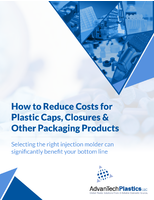Catalyst helps refiners meet diesel demand.
Press Release Summary:
With HDXtra(TM), petroleum refiners can utilize current gasoline-oriented fluid catalytic cracking units to meet global demand for diesel fuel. Catalyst helps increase diesel yields by maximizing production of light-cycle oil produced from FCC unit. Providing high matrix activity combined with good coke selectivity, HDXtra uses moderate zeolite activity, which controls amount of LCOs cracking into gasoline while also offering minimized H-transfer activity.
Original Press Release:
New BASF Catalyst Helps Refiners Meet Higher Diesel Demand
ISELIN, NJ, March 25, 2009 - BASF Catalysts today announced the commercial launch of proprietary new technology that enables petroleum refiners to utilize their current gasoline-oriented fluid catalytic cracking (FCC) units to meet the increased global demand for diesel fuel.
BASF's HDXtra(TM) catalyst helps refiners increase diesel yields by maximizing production of the light-cycle oil (LCO) produced from the FCC unit. The LCO can be blended or further upgraded to augment the refiner's production of high quality diesel fuel. This technology, combined with optimized operating conditions, enables refiners' to increase LCO yield up to a 10 percent volume increase, with nearly half of the benefit attributable to catalyst selectivity.
"Over the past 50 years there has been a gradual trend toward increased FCC conversion that has primarily produced gasoline versus heavier fuels, such as diesel, among the world's refiners," said Joe McLean, Global Marketing Manager for refining catalysts at BASF Catalysts. "Recently this trend has dramatically switched to increased demand for diesel fuel from FCC units that, generally, are not easily converted for such production."
"To meet this sudden and urgent need, BASF has developed a new catalyst to enable refiners to maintain margins in this challenging market place. HDXtra combines the best attributes of traditional high-zeolite catalysts, namely good coke selectivity, but poor bottoms to LCO conversion, with traditional high-matrix catalysts, which can upgrade bottoms to LCO, but have poorer coke selectivity," he said.
HDXtra offers higher functionality by providing high matrix activity combined with good coke selectivity. The catalyst also uses moderate zeolite activity, which better controls the amount of LCOs cracking into gasoline while also offering low H-transfer activity, which preserves more hydrogen in LCOs for minimal cetane penalty, a key measure of diesel quality.
New selective matrix cracking technology has been introduced with the HDXtra catalyst. To date, the benefits of increasing LCO yields while maintaining excellent bottoms conversion has been demonstrated in two North American refineries in 2008, with additional trials ongoing in Europe and other markets.
BASF Catalysts has been providing innovative catalyst technologies and additives, supported by strong customer service, to the petroleum refining industry for more than 50 years. Many of BASF's catalysts and additives are derived from its patented, award-winning DMS technology platform (Distributed Matrix Structures) that enabled BASF Catalysts to develop fluid catalytic cracking (FCC) catalysts and additives with a new, higher level of performance, including enhanced stability, activity and yield without the typically associated coke and gas penalties. Catalysts based on DMS technology are used in more than 120 commercial FCC units worldwide.
For more information contact:
Theodore Lowen
BASF Catalysts LLC
Tel: (732) 205-6360
E-mail: theodore.lowen@basf.com
About BASF's Catalyst division
BASF's Catalysts division is the world's leading supplier of environmental
and process catalysts. The group offers exceptional expertise in the development of technologies that protect the air we breathe, produce the fuels that power our world and ensure efficient production of a wide variety of chemicals, plastics, adsorbents and other products.
About BASF
BASF is the world's leading chemical company: The Chemical Company. Its portfolio ranges from chemicals, plastics and performance products to agricultural products, fine chemicals as well as oil and gas. As a reliable partner BASF helps its customers in virtually all industries to be more successful. With its high-value products and intelligent solutions, BASF plays an important role in finding answers to global challenges such as climate protection, energy efficiency, nutrition and mobility. BASF has approximately 97,000 employees and posted sales of more than 62 billion in 2008. BASF shares are traded on the stock exchanges in Frankfurt (BAS), London (BFA) and Zurich (AN). Further information on BASF is available on the Internet at www.basf.com.




